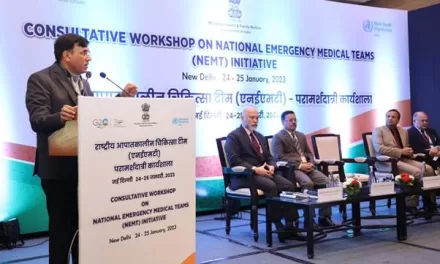Approximately two-thirds of people who achieve older age are likely to need care and support from others at some point, to perform activities of daily living, such as eating, moving around or bathing.
Such needs may arise suddenly, as a consequence of an acute problem or event, or may develop gradually over time. Irrespective of why a person might need long-term care, many health and social care systems around the world are currently unable to deliver long-term care services and support to older people who need it.
Providing guidance to countries on long-term care
To support countries to develop or strengthen their long-term care systems and services, WHO has released a new Framework for countries to achieve an integrated continuum of long-term care. The framework was developed in consistency with the existing strategy, action plan and frameworks on healthy ageing, and was based on the latest evidence and consultations with a range of stakeholders including WHO’s expert advisory group, Global Network on Long-term Care.
Through the framework, WHO aims to provide guidance by highlighting key components of long-term care systems to support countries in their journey to establish sustainable and equitable long-term care provision. The framework is primarily intended to be used by
governments and policymakers and provides a checklist which helps to assess existing long-term care systems, identify potential gaps, and ultimately help in planning for next implementation steps.
“The framework aims to promote a global common understanding of long-term care, as well as facilitate assessment and integration of long-term care systems and services within existing health and social care systems,” says Dr Anshu Banerjee, Director for Maternal, Newborn, Child and Adolescent Health and Ageing.
As outlined in the new framework, the long-term care systems and services should:
- be person centred and aligned with the person’s values and preferences;
- optimize functional ability over time and compensate for loss of intrinsic capacity;
- be provided in the community;
- provide integrated services in a continuum;
- include services that empower the older person; and
- emphasize support for carers and care workers
Note to Editors
The UN Decade of Healthy Ageing 2021-30 recognises the challenges faced by countries and includes providing access to long-term care for older people who need it as one of its four action areas.
WHO and partners in the UN Decade are striving for a world in which all people can live long and healthy lives, including through access to long-term care services and support, when needed.











